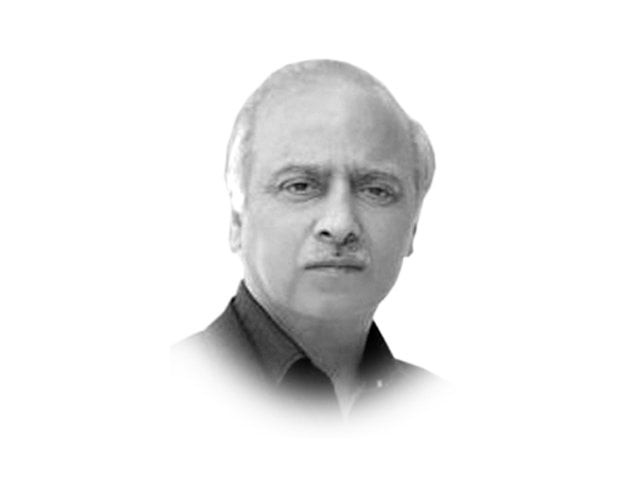Success lies in the rule of law
Pakistan can still win the war against terrorism and religious extremism if everybody goes back to the rule of law.

The writer heads the independent Centre for Research and Security Studies, Islamabad
The case related to a seminary illegally constructed at the G-11/3 graveyard. Earlier this month, the court ordered the Capital Development Authority (CDA) to demolish the structure within a week. The CDA complied and razed it. This happened only because the top echelons of power refrained from intervention. And this explains that given political will, no man-made problem is insurmountable.
The lawyers’ arguments and observations during this case offer an interesting study in the subtle shift within the judiciary in favour of the strict enforcement of the rule of law. While issuing directions for the demolition of the illegal structure, Justice Shaukat Aziz Siddiqui observed that “no religious seminary can be constructed in an illegal manner and without adopting a due procedure … Do you have the permission from the CDA or any competent authority to establish the madrassa?” Justice Siddiqui asked the counsel for the ‘illegal seminary’. The counsel for the seminary administrator instantly ducked under a lame excuse claiming that there are a number of madrassas in the capital running in a similar manner. But Justice Siddiqui promptly reminded him that it was against even the teachings of Islam to encroach upon another’s land.
Quoting an example, former president of the IHC Mohsin Akhtar Kayani told a publication that one of the mosques in sector F-8 has grown from a small structure that it was 20 years ago into a huge compound comprising a six-bedroom house for the khateeb alone. “Where is the CDA?” asked Kayani. But CDA officials insist they could remove all illegal structures if the federal government provided all-out support, instead of being driven by expedience. CDA officials recall the bloody events of 2007 when the campaign against illegally-constructed mosques and madrassas eventually culminated in the operation against Lal Masjid, following the demolition of a couple of mosques and madrassas.
At the time, leading anchors and writers had promised full support to General (retd) Pervez Musharraf for the campaign against illegal structures, but the same people turned on Musharraf once the crackdown resulted in deaths of several dozen people. Images from the Lal Masjid operation and the events preceding that action still haunt the residents of Islamabad, who had felt helpless at the hands of non-state actors. They also felt betrayed by the mainstream media, which had projected violators of the writ of the government as innocent victims.
The big question looming now is whether similar action will be taken against another 305 mosques/madrassas constructed illegally on CDA land in various sectors? The figure was part of a report submitted to the Public Accounts Committee in early 2015. At least four conclusions can be drawn from the successful implementation of the IHC directives: the first step for correcting socio-political illegalities has to spring from within the community; the judiciary can deliver if it looks at aberrations purely as violations of law; unflinching institutional response to violations of law is possible if everybody upholds the principle of the rule of law and lastly, the state machinery can enforce the rule of law only if backed by undiluted political will.
And therein lays the hope for gradually but effectively countering all those forces which are acting outside the ambit of the law of the land. One would also hope that the judiciary will adjudicate matters strictly according to the existing justice system. Although being led by a mediocre mindset in a very difficult situation, Pakistan can still win the war against terrorism, religious extremism, and the nexus between organised crime and militancy-political forces if everybody goes back to the rule of law.
Published in The Express Tribune, June 17th, 2015.
Like Opinion & Editorial on Facebook, follow @ETOpEd on Twitter to receive all updates on all our daily pieces.















COMMENTS
Comments are moderated and generally will be posted if they are on-topic and not abusive.
For more information, please see our Comments FAQ